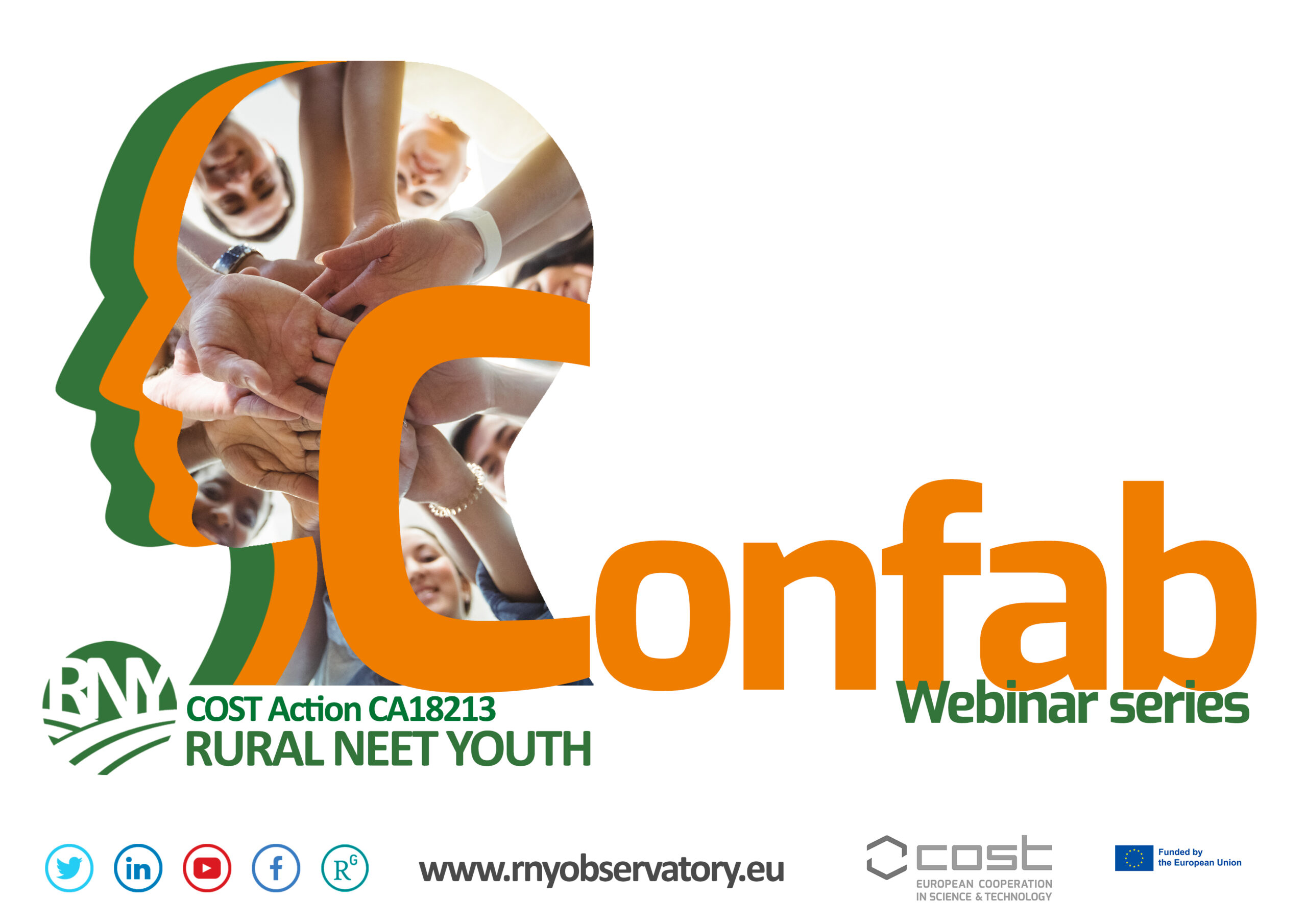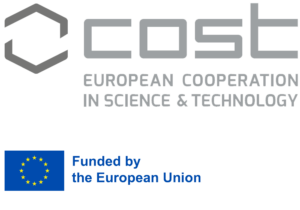
As part of our events, we want to share with you the vision of the main stakeholders and researchers about the Rural Youth with this series of Webinar called “Confab”.
We will have a monthly webinar about the most important issues of our topic. We will publish here the confirmed webinars. Sign in and we will send you the confirmation of the new ones activities of our “Confab” webinar series.
PROGRAM:
NEXT WEBINARS
28th October 2022 – 15:00CET
WATCH LIVE ONLINE: https://youtu.be/dsiVvHai7yc
Female migrants in NEETs: an intersectional perspective on vulnerability
Speaker:
Stephanie Steinmetz is an Associate Professor at the University of Lausanne and Amsterdam. Her research focuses on educational and labour market vulnerabilities from a cross-national and intersectional perspective. Over the years, she has collaborated in several European funded projects and served as an expert on gender for the European Institute for Gender Equality and Eurofound. Currently, she is the Secretary General of the International Social Survey Programme (ISSP), which collects comparative survey data in over 40 countries worldwide. Her work has been published in international journals such as the European Sociological Review, Work, Employment and Society, Social Forces, Comparative Social Research, the International Journal of Comparative Sociology and Social Politics.
PAST WEBINARS IN THE PROGRAM
12th May 2022 – 15:00CET
Impact of COVID-19 on young people in the EU
Speaker:
Eszter Sandor is a research manager in the Social Policies unit at Eurofound. She has a background in economics, and expertise in survey methodology and statistical analysis, having worked on the preparation and management of the European Quality of Life Survey and the Living, working and COVID-19 online survey. Her research interests include quality of life of young people and families, particularly well-being, social exclusion, work–life balance and living conditions.
Review recording video here: https://youtu.be/PJpecfmHfag
16th June 2022 – 12:00CET
South side story: Lessons from the Meditarrean countries for NEETs inclusion
Speakers:
Stelios Gialis has current research interests lie in the intersection of Labour Geography and the study of the spatial divisions of various forms of employment (flexible, informal, precarious) across urban and regional labor markets. I draw upon concepts and methods of various (new or ‘old’) traditions of Geographical Political Economy, broadly defined. I currently act as the Principal Investigator & Coordinator of, among other projects, the YOUTHShare project (http://www.youthshare-project.org).
Effie Emmanouil is a PhD candidate in Economic and Labour Geography at the University of
the Aegean. She has studied Civil Engineering at the Aristotle University of Thessaloniki and
has a Master’s degree in Engineering Project Management and a Master’s in Human
Geography-Development and Spatial Planning. Her research interests include regional
resilience, youth employment and policies for youth,and the title of her dissertation is
Regional unevenness and NEETs (young people Not in employment education or Training) in
the Mediterranean European South: Critical assessment of relevant employment policies with
a focus on flexible forms of work. She received a scholarship by the program ‘YOUTHShare, A
Place for Youth in Mediterranean EEA: Resilient and Sharing Economies for NEETs, Norway
and EEA GRANTS 2014-20, and has participated as a doctoral researcher in the Work Package
1 (Stimulate Trans-locally: A transnational Research Network on the study of Youth
Employment policies in MED EEA) of the same program.
Athina Avagianou is a PhD student affiliated with the Department of Geography at the University of the Aegean (Greece). She has a diploma in Architecture and a Master’s degree in Geography and Applied Geo-Informatics. Her research interests focus on youth unemployment and inactivity in the EU South, and on the role of social and sharing economies in the employment prospects of young people. Since the beginning of her PhD she has worked as a researcher in various projects studying contemporary youth unemployment and inactivity trends and diverse economies in the EU South.
Specifically, she has conducted primary and secondary data analysis on NEETs and social and sharing economies in the framework of the YOUTHShare Project ‘A Place for Youth in Mediterranean EEA. Resilient and Sharing Economies for NEETs’, funded by the EEA and Norway Grants Fund for Youth Employment (http://www.youthshare-project.org/). Her role in the Cowork4Youth Project – Collaborative and sharing workspaces for youth in EEA peripheral regions, funded by the EEA and Norway Grants Fund for Youth Employment, is the one of Junior Researcher studying the policy framework of coworking spaces and the impact on youth. In the ReWorkAegean Project ‘A hub for the diffusion of the social economy for the employment of young NEETs and the use of the building stock with Pilot implementation in the North Aegean’, funded by the Hellenic Foundation for Research and Innovation (HFRI), Athina Avagianou studies the feasibility of a hub that brings together young NEETs (Greek and migrants), with the Social Economy practices and the alternative utilization of empty building stock.
Review recording video here: https://youtu.be/oeHCW8uWpVs
14th July 2022 – 12:00CET
Rural trends and youth dreams for rural development and generational renewal
Speaker:
The RURALIZATION project is based around the idea that a process of ‘ruralisation’ can change development patterns in rural areas overcoming population and economic decline and generating new opportunities. To foster a “ruralisation” process across Europe, we need new policy-relevant knowledge, which the RURALIZATION project will generate. Funded under the Horizon 2020 programme, RURALIZATION gathers 18 partners from 12 different countries including not only research organizations but also partners that implement innovative practices, such as members of the Access to Land network. This diversity will guarantee a wide range of perspectives and situations thus ensuring the project will formulate solutions and recommendations which respond to the diverse needs and features of rural areas in Europe.
Review recording video here: https://youtu.be/U_pqaU7rQqE
![]()

